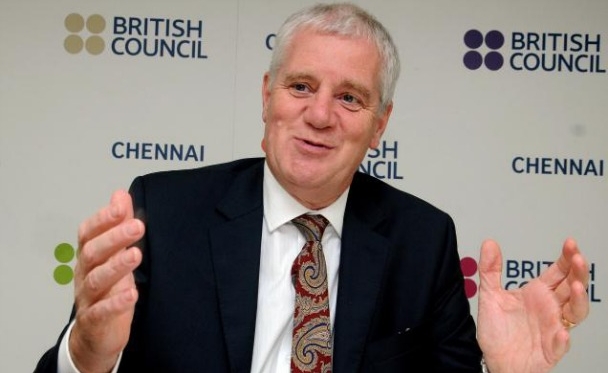
International Cultural Relations in the 21st Century with CEO of the British Council Martin Davidson
The USC Center on Public Diplomacy was pleased to welcome Martin Davidson, CEO of the British Council, the UK’s cultural relations organization to discuss international cultural relations in the 21st Century.
This discussion, moderated by CPD director Philip Seib, addressed how the British Council creates international opportunities for the people of the UK and other countries, and builds trust between them worldwide. With 191 offices in 110 countries, the British Council works through the arts, education, and society to create long-term relationships with the UK that provide cultural, educational, diplomatic and economic benefits.
About Martin Davidson
Martin Davidson became the British Council’s Chief Executive in 2007, having been Deputy Director-General since 2005. When he joined the British Council as Assistant Representative in Beijing in 1984, British Council China was an operation of 6 people working in a converted bicycle shed at the British Embassy. Davidson played a pivotal part in building this fledgling presence up to its present strength of more than 230 people in four offices. He has also held various posts in the British Council’s Geographical Directorate with responsibilities that have included South East Europe, in a particularly troubled time in the region’s history, the Middle East, East Asia and the Americas.
To read the co-written blog that appeared in the Huffington Post, "The Independent Power of Cultural Diplomacy," by CPD Director Philip Seib and British Council CEO Martin Davidson, please click here.
To read more about Martin Davidson's visit to the USC Center on Public Diplomacy, check out the British Council's April Newsletter.
SYNOPSIS
Long-term relationships go beyond states and non-state actors, to fundamental core interactions amongst people to people relations in order to provide key cultural, educational, diplomatic and economic benefits. Martin Davidson, CEO of the British Council, said that relearning this importance and developing trust are core elements for public diplomacy and cultural relations.
“Trust is built over time and not created in the moment,” observed Davidson during his talk. He outlined some recent forays in cultural diplomacy by China and Turkey, and reminded the audience that establishing mutual trust is a prerequisite for successful public diplomacy.
Davidson continued to explain that there are a number of essential techniques and dimensions in generating trust. Among them is dialogue. However, recalling the importance of listening rather than speaking as a means to developing a shared agenda is a strategic public diplomacy model. “British Council is aware of its impetus to build trust and engagement for the UK, but works to the extent that there are mutual benefits.”
In response to how to strike a balance between the need to fit within the foreign policy agenda while maintaining a distinction from the government, Davidson suggests that British Council places great importance on the distinction between cultural centers and government. “We need to be prepared to engage in the conversation around the importance of cultural diplomacy and learn to tell the story about why the cultural relationships add to that agenda.” Davidson said, “After all, there is greater appreciation for the role of cultural diplomacy in the present government than in the former.”
Yet, there are challenges that remain in constructing these types of international, domestic, state, non-state or person-to-person relationships. One of the on-going challenges for these types of developments is the rapid change of culture through influence by social outlets like media and technology. Davidson suggests that by providing a “flexible” voice in cultural relations it reduces the possibility of building tensions. And ultimately, this presents an opportunity to create understanding amongst participants in cultural exchanges.
Conversations in Public Diplomacy with Martin Davidson from British Council USA on Vimeo.
Visit CPD's Online Library
Explore CPD's vast online database featuring the latest books, articles, speeches and information on international organizations dedicated to public diplomacy.











